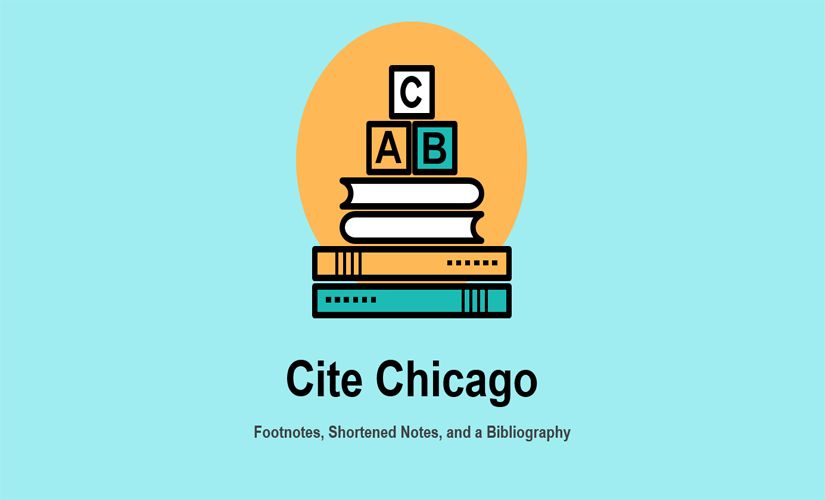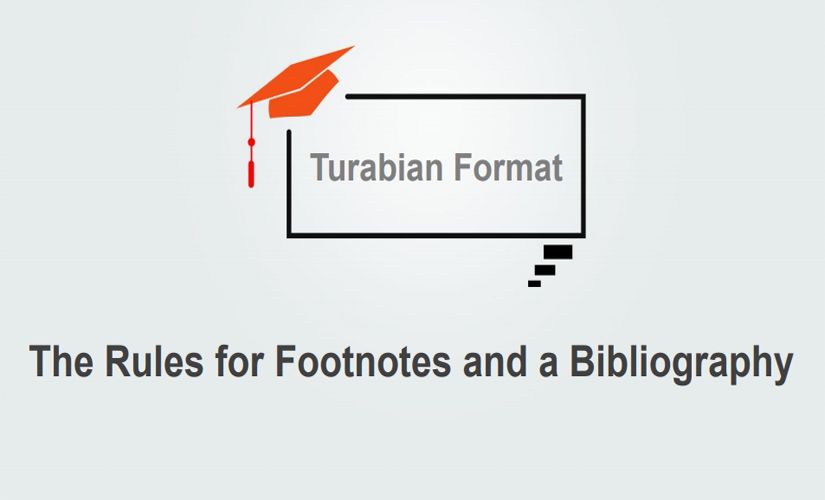The Chicago documentation style is widely used in academic writing. For instance, the note-bibliography style is one of the distinct forms of the Chicago citation style. Also, people must know this format in order to avoid plagiarism. Basically, if people cite Chicago, it comprises of two main features: footnotes (F) and bibliography entries (B). In particular, the note-bibliography style focuses on specific guidelines for footnotes, shortened notes, and the bibliography list.
Footnotes to Cite Chicago
Firstly, footnotes are a unique aspect of the note-bibliography style if someone wants to cite Chicago. For example, sentences containing source material are cited through the placement of a superscript after the punctuation mark. In this case, people do not use parenthetical in-text citations in the note-bibliography style. Also, the Chicago style or Turabian citation distinguishes this technique from other conventional documentation formats. Then, the superscript corresponds to a footnote at the bottom of the same page and lists the authors’ names, source’s title, publication information, and page numbers. Particularly, footnotes in the Chicago style format provide complete bibliographical information and the specific location of the cited material. As a result, an illustration of the note-bibliography style is:

Superscript in the Essay:
The Great Depression caused the failure of over 12,000 banks.1 This statement suggests . . ..
N:
1. Peter Stock, Revisiting the Great Depression (New York: Paterson & Sons, 2019), 334.
Cite Chicago Shortened Notes
On the other hand, the repeated use of a source does not require people to provide a complete footnote when they cite Chicago. In this case, people use shortened notes for subsequent notes of particular sources, which may manifest in three forms: author-title, author-only, or title-only. Basically, the contracted footnotes in the Chicago style citation are useful because they eliminate the repeated lengthy notes. Moreover, it facilitates the tracking of sources throughout the essay. Basically, the short note format depends on the instructor’s preference.
Illustrations of Short Footnote Styles:
Author-title note: 20. Jones, Clinical Principles, 105-06.
Author-only note: 6. Quinn, 87.
Title-only notes: 19. Cite Chicago, 9.
Bibliography
Furthermore, a “Bibliography” is a documentation of all sources used in the essay. For example, entries in the “Bibliography” contain the same elements as a full footnote when people cite Chicago. However, there are slight variations concerning the organization of the elements and punctuation. Also, the entries are listed according to the alphabetical order to follow the rules of the Chicago manual of style citation. In turn, the “Bibliography” must always be included at the end of an essay unless the instructor requests for its exclusion.
Notes-Bibliography Style Formats for Common Sources
Book:
N: 1. Evans Knowles, Creative Writing: Cite Chicago, 4th ed. (Boston: Johnson & Clay, 1987), 16.
B: Knowles, Evans. Creative Writing: Cite Chicago. 4th ed. Boston: Johnson & Clay, 1987.
Journal Article:
N: Mercy Rodgers, “Terrorism in Central Africa,” Conflict and Security 56, no. 12 (2019): 6, accessed July 9, 2019, http://dx.doi.org/rt68-ll908.
B: Rodgers, Mercy. “Terrorism in Central Africa.” Conflict and Security 56, no. 12 (2019): 3-12. Accessed July 9, 2019. http://dx.doi.org/rt68-ll908.
Website:
N: James Jacobson, “Cite Chicago,” Charming University, last modified August 11, 2009, accessed May 23, 2019, http://www.announcements.charminguni.edu/8888801.
B: Cross, Samuel. “Cite Chicago.” Charming University. Last modified August 11, 2009. Accessed May 23, 2019. http://www.announcements.charminguni.edu/8888801.
Conclusion on Cite Chicago
In conclusion, the note-bibliography style provides a technique for accurate citation of the source material to cite Chicago. In this case, researchers and students should strive to internalize the mentioned fundamental guidelines of the Chicago style citation manual. Also, random bibliographical information by considering the Chicago manual of style was used as the examples. However, all sources and in-text citations correspond to the format rules.


